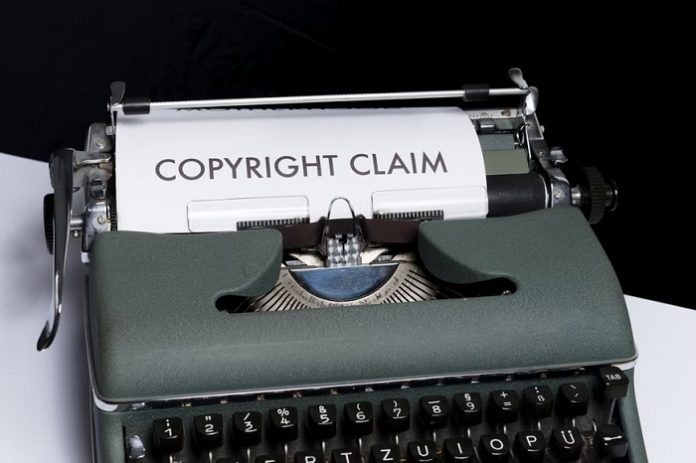Copyright is a type of intellectual property, allowing the copyright’s holder to protect their ideas or products against other people copying or reproducing them.
Before a person can go ahead with selling, marketing, or publicizing an idea, they need to check if it is copyrighted or not. If taken to court for copyright infringement, one can expect to receive a hefty fine. Copyrights are typically published online, so finding out whether an idea is copyrighted or not is not difficult. Ignorance is no excuse.
This article will explain what copyright infringement is, as well as other information about copyright law:
Copyright Law
Copyright is a form of intellectual property, which gives creators ownership of the things that they have created. Intellectual property is owned the same way that physical property is. Copyright law in the U.S. is controlled by federal legislation, the Copyright Act of 1976. This act prevents unauthorized copying or use of another person’s idea. Unlike trademarks, copyrights do not have to be registered. With that said, they can be registered in the Library of Congress’ Copyright Office. You can contact a team of internet law specialists to handle your idea’s copyright for you. This saves you the trouble of having to navigate through government websites, documents, and departments.
If a piece of work is created by an employee for their employer, then the employer owns the copyright. The employee can be taken to court for breaching copyright if they try to reproduce this content elsewhere.
A person’s work or creation becomes instantly copyrighted if it meets certain parameters. It must be original and the creator must have exercised skill in its creation. Some things that would typically be protected by copyright include:
- Musical works
- Artistic works
- Films
- Documentaries
- Broadcasts
- Dramatic works
- Literary works
Copyright Infringement
Primary copyright infringement occurs when a person copies, issues copies to the public, rents or lends to the public, communicates to the public or performs or shows substantial copyrighted material to the public. If the person has prior consent, however, then this is not copyright infringement. The word substantial in this context is ambiguous. There is no fixed amount of content that is considered “substantial.” The judge will use their discretion when prosecuting the person responsible for the theft.
Secondary copyright infringements occur when a person imports copyrighted material, makes it possible for other people to steal a person’s material, or possesses or deals in copyrighted material. If any of these acts take place without the copyright holder’s permission, then they are in breach of copyright law. It is possible to get a license that allows people to deal in copyrighted work, but it is also advisable to get the copyright holder’s permission, to avoid future legal action.
Infringing Copyright
If a person does infringe upon your copyright, then the first thing that you need to know is that they have broken the law. If a person knowingly infringes upon your copyright, then they can be prosecuted. If they were totally unaware or were misled, then the chances are that they will not be punished by a judge. If a person does knowingly infringe upon your copyright, then you can claim damages for losses, an injunction, a document showing how much profit the infringer made, or an order to the infringer to deliver all of your material back to you. It is entirely possible for a person to be sentenced to a period of imprisonment for the theft of copyrighted material, particularly if they are persistent or have profited massively from another person’s material.
Copyright Exceptions
There are many exceptions to U.S. copyright law. If works are not “original works of authorship fixed in any tangible medium of expression” according to Title 17 of the United States Code, ch. 17, then they are not subject to copyright. Also in ch. 17, it is made clear that ideas, processes, and systems may not be copyrighted. Blank forms, titles, short phrases, slogans, names, ingredient lists, and domain names may also not be copyrighted.
Copyright holders cannot limit further distribution and sale after they have already sold their material. The copyright’s new owner is legally allowed to sell, dispose of, or display their newly purchased work.
Fair Use
Another exception to U.S. copyright law, and perhaps the most often used, is fair use. Fair use allows people to use a limited amount of a person’s copyrighted material – as long as it isn’t a “substantial” amount – and as long as they use it in a way that does not become an infringement. The rules regarding fair use are not set in stone. Fair use claims are judged on a case-by-case basis.
If, for example, a videographer or content creator used excerpts from somebody else’s video in their own content, they should make it clear they are using the content under fair use and compel their viewers to visit the original content creator’s channel. If the content creator just republishes the other person’s work, then it is likely that they are in breach of copyright law. In order to use it under fair use, they must add new information, aesthetics, insights, and understandings.
Parodies
Another exemption to copyright law is the creation of parodies. While parodies are technically derivative works, they still often qualify as fair use. With that said, they aren’t automatically fair use and can still be taken to court. It is unlikely that anybody will take somebody to court for a parody unless they find it particularly offensive, however. The Supreme Court of the United States defines a parody as something that comments on an author’s work, by using elements from their creation.
Copyright Prosecution
If you are the author of something that has been stolen, then it is important that you pursue the culprit in court. A person using your work for their own gain should not be tolerated. If you allow a copyright thief to go ahead with stealing your material, you embolden them to do it to others.
The bottom line is this: anything that you have created that took skill to create is instantly copyrighted. It is advisable to formally register copyright, however. This is so that you can prove you own your content’s copyright, particularly if it is graphic art or unpublished work.









